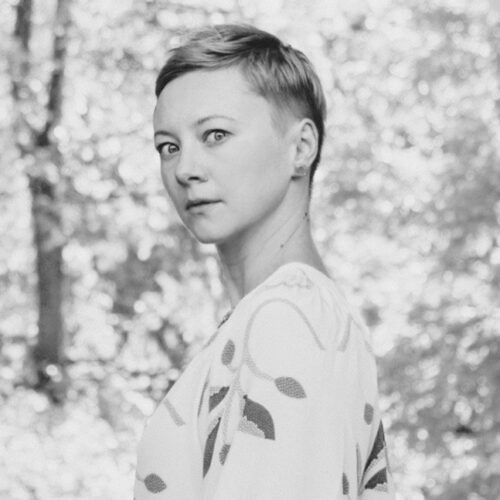Cenotaph
In a chance encounter, a stranger who knew you in your Mordovian evacuation, described the horrible hunger, and described you as a hungry boy who always carried a book.
I
On this table made of foreign trees
the bread of silence, unbroken.
Mute, a portrait of myself: I’m framed
into the back of the chair. And you are here,
yet not. Your bones in the womb of the earth,
yet not, a hungry boy with a book, in a mass grave
next to your twins-in-death, your name,
that sounded foreign to them,
is changed for a Russian name
in an act of unbaptism.
Yet not.
The bread sits on the square wooden shoulders.
When you go hungry for months,
your heart is a red bone.
All I see when I open a book is your empty stomach.
II
Sometimes your stomach is a magnifying lens.
With it, I search from page to page
for an old potato dug into the soil of print.
I go so mad I listen to the pages of books
wondering if you chewed on the roots of trees
turned this paper.
Into my stomach-sized fist
I fold a raisin, a walnut, some sugar.
With this fist I knock the air out of air,
strike whatever’s around.
where cars resemble giant turtle shells abandoned by all life.
From these turtle cemeteries
I watch hills- ophthalmic distortion,
red barns- ants on my eye bulbs.
Doctor prescribed me drops of Lethe water.
Why do I speak to you?
Favorite grandchild of your favorite sister,
the more Lethe I put into my eyes, the closer I am to you.
Inside my Noah’s Ark–ghosts ready to beget ghosts.
Do you know what a ghost looks like?
It looks like blood.
III
Sitting a breath away from you, I’m afraid
of my tongue’s shadow move in the corners
of my mouth.
I pulled this house over my head like a cast
to heal fractured sanity, thought to thought.
I silenced all past by the spell of a camera flash,
yet not.
So,
if there’d be a sound between us,
let it be one that starts
with touch,
which is music.
Music that, over accordion keys,
unclenches the fist of ancestry,
loosens fingers into rose petals.
Family tree is not a tree, but a rose bud,
petals tied together, mouths down.
In bed at night you listened for the sound
of an iron gate squeal like at slaughter
and licked your lips. Then, silence
straightened its shoulders inside your nostrils.
You died on a hospital sheet bleached
and starched until it seemed to be made
out of ironed bones.
What does the family rose think about that
as my pen stands up like hair on top of this paper?
From one hospital-white key to the next,
I carry my dead in order to tuck them into
these shrouds weaved out of sound.
I bury them, properly, one by one,
inside the piano-key coffins.
I rush–I learned to rush from the earth!
Earth, a bladder full of dirt and snow.
Yet, not.
